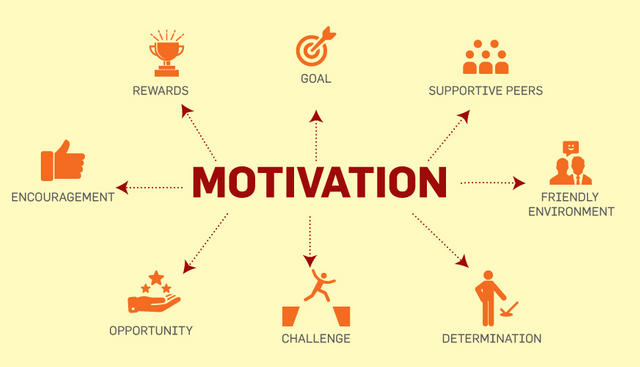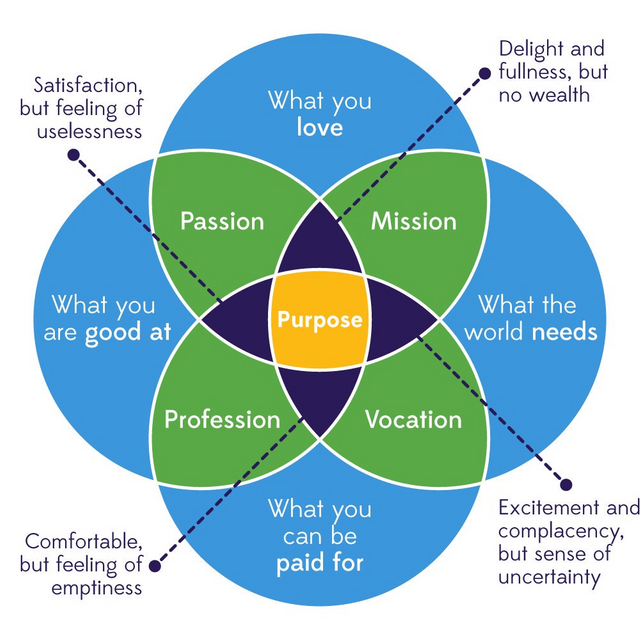
I've been fascinated by people with high self-motivation. Even if they are not guaranteed to succeed, they are enjoying their work. They are often successful for doing their job with pleasure and passion. Those who are not in such a fortunate state wait for external factors that will motivate them. External factors are variable by definition, beyond the control of individuals, and ideal conditions that provide high motivation do not usually occur.
I noticed in the first months of my working life that motivation was needed to accomplish any task. I've never been a lazy and reluctant type, but my inner motivation was not very high. I remember doing a lot of research to learn how to increase my motivation.
I was responsible for the motivation of my colleagues as well as mine when the years went by, and I became a manager. I was working in a very motivated way, but I couldn't contribute to the motivation of my colleagues. This was not a special case for me; I have never met a single manager who has been able to increase the motivation of his colleagues permanently. I can't say that the face-to-face interviews were useless, but the managers who were successful in human relations could increase the motivation of their teammates in a manner that would be valid for several hours to several days. However, this result was of course far from satisfying.
I do not suggest that managers do not affect team performance at all, the teams of managers who love their job and inspire their teammates are of course working in a more motivating way on average. Nevertheless, the internal motivation levels of individuals working on the same team are so different from each other, I think the impact of the environment is very limited.
Having high motivation is not just a necessary feature of business life. You need to have a high motivation to work for exams, to quit smoking, to lose weight, and to do sports.
How does this blessed emotion, which we call motivation appear in the person? Some lucky people come to the world in a motivated fashion? What do we need to do to motivate? I will try to give answers to these questions based on my research and personal experience.
I came across an article explaining motivation at some stage of my working life, and based on my personal experiences, I decided that what was told was true. The report stated that the motivation of people who do information-based work was determined in line with three fundamental factors.
Connection To Others
We mostly operate as a team. The social environment in which we work has a significant impact on our motivation. Do we like people we work with? Do we respect them? Do they love and respect us? Do we consider ourselves embraced in the environment? Is there a positive atmosphere in our working environment, or is there a cold wind blowing between people? When the answers to these questions are positive, our motivation is positively affected.
Autonomy
In every human being, an incorrigible anarchist lives. We don't like someone telling us what to do and how to do it. Those who have children will understand that very well. They are more likely to accept what we want them to do when we express them with multiple options. As a result of our activities, we want to get a result of the decisions we make. Our motivation is increasing when we have such conditions.
Competency
It's a good feeling to be able to do something other people can't do. As we master a job, we begin to experience this feeling more intensively. In time, we become an authority on what we are interested in, people start to consult with us, and we become more interested in doing what we are capable of.
These three items explain why I had a mediocre self-motivation at the beginning of my working life. On the other hand, the story is not limited to that. There are also differences in motivation among people who are on the same team, who do similar work, and who have the same seniority. Why?

Other Factors
Personality and perspectives on life affect internal motivation. The inner motivation of individuals who can look positive in life and have a sense of responsibility is high. In addition to these, how much one needs success is an essential factor in my opinion. Some individuals need money, appreciation, more than others for financial or psychological reasons. They're ready to make more effort and sacrifice.
People who have one or more goals that have a spiritual meaning can maintain a higher level of motivation for achieving that goal for a more extended period. To achieve the primary goal, one has to have daily sub-goals, of course. It usually takes too long to reach the main goal, and even worse, because it is often unclear when the main goal will be achieved, we need to be happy with the achievement of our daily goals.
Although I emphasize the importance of internal motivation, positive feedback from others contributes significantly to motivation. Also, not doing the same things in the same way for a long time, learning and developing are factors that increase motivation.

When you do a particular job in a disciplined way for a certain period, it becomes a habit. In this case, whatever the difficulty encountered in doing that job, people are beginning to be affected by it.
So far, I have not mentioned money or the benefit of the motivated target. Money is more important if the work is monotonous and annoying that a human would rather not do. As the business becomes complicated and difficult to achieve, the effect of money on motivation diminishes. Here, of course, the extent to which the individual need money is also an essential factor.
Finally, I would like to emphasize the importance of loving one's job. Although competence is occurring over time, the maximum level of skill to be reached is closely related to the person's ability to deal with the subject. If a person likes to do something, we can assume that he or she is capable of it. People can work in a more motivated way because they gain much faster competence in the field of being gifted. Finding the goal shown in the diagram below is very important to have high motivation.

Conclusion
The essence of this article can be summarized as follows:
Do your favorite job, if it is not possible to do the job you love, try to enjoy the job you do.
Get a big goal you want to accomplish, work stably to achieve that goal.
Don't expect others to motivate you, look for ways to motivate yourself.
If you are at the beginning of the road, do not worry about being motivated, your motivation will increase as you gain competence.
If you are an manager, let your employees use initiative, if you are an employee, take the initiative and try to create something of your own.
Try to create an environment where positive emotions are dominant.
Give constructive feedback to those around you and request feedback from them.
Be determined, take advantage of the power of habits.
Although motivational speeches effect long, I wanted to end this article with a motivational speech that I like very much. In Any Given Sunday, Al Pacino is briefing the American Football team, where he is a coach before the final match.